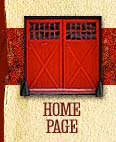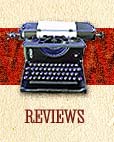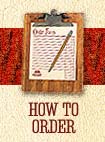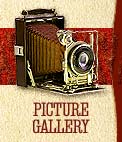“Every County Has Its Own Personality”
An Interview with David Freeman
by Marshall Wyatt
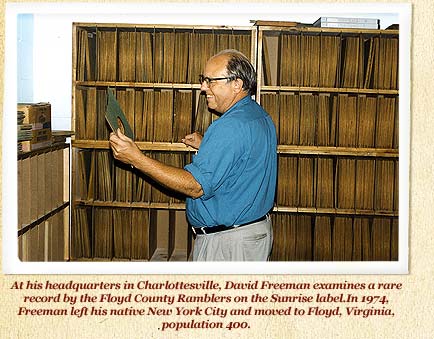 Charlottesville, Virginia / August 11, 1999 Charlottesville, Virginia / August 11, 1999
First published in The Old-Time Herald, Volume 7, Number 2, Winter 1999/2000
David Freeman is a busy man. Over the years he has combined his love of music and a collector’s instinct with a keen business sense, carving his own distinctive niche in the recording industry. In 1964, while living in New York, he brought out his first LP anthology on the County label, beginning a string of reissues that showcased the great old-time string bands from the prewar era, records that drew heavily on Freeman’s own collection of 78s. County also began a series of live recordings by old-time musicians, including such luminaries as Kyle Creed and Tommy Jarrell. In 1965, Freeman quit his job with the railway post office and began selling country records as a full-time pursuit. In 1974, he left behind the bright lights of the big city and moved to Floyd, Virginia, population 400. Here, the County label flourished, as well as the retail mail-order business, County Sales, which continues to operate in Floyd. In 1978, Freeman founded Record Depot, a wholesale distributorship now located in Roanoke, where Freeman moved in 1980 after purchasing Rebel Records.Today, Rebel is recognized as one of the leading names in bluegrass music, with a roster of prominent artists that includes J.D. Crowe, The Seldom Scene, and Ralph Stanley. After surviving a difficult transition from vinyl to CD, the County label now boasts an ambitious reissue program, producing some of the finest collections of old-time music to be heard anywhere. In addition to all this, David Freeman offers regular auctions of rare out-of-print records, just as he’s done for the past 40 years. He has come a long way since those early days when he operated from a single room of his father’s printing business on East 37th Street. And now, at age 60, he shows no signs of letting up.
Freeman has recently moved again, from Roanoke to Charlottesville, a distance of 120 miles along the Blue Ridge. The nerve center for Freeman’s various enterprises is located eight miles north of town in a new industrial park near the airport. Any visitors expecting quaint rooms with old-fashioned bric-a-brac will be disappointed as they enter the double glass doors that bear the Rebel logo. Instead, this modern complex contains a spacious reception area, pristine offices, cutting-edge computer equipment, a library, kitchen, shipping room, and a vast warehouse, all brand spanking new. The place even smells new. And yet, there are remarkable artifacts within these walls, in a special room set aside for the record collection. Actually, there are two record rooms-one houses Freeman's archive of rare 78s, as well as LPs, and the other contains records awaiting auction.
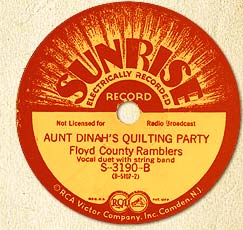 David Freeman's collection of 78s is honed to a level of excellence seldom found in the realm of old-time music. Others can claim larger holdings, but few can match the quality of Freeman’s records. His shelves hold impressive runs of Columbias, Victors, and Brunswicks, many of them in mint condition, and also plenty of those labels that are so highly prized by collectors- Paramounts, Champions, Superiors, and Gennetts, not to mention such obscurities as Polk and Sunrise. The collection is strong on early string-band recordings, but also contains rare postwar country and bluegrass, and a small but choice selection of blues and Cajun records. David Freeman's collection of 78s is honed to a level of excellence seldom found in the realm of old-time music. Others can claim larger holdings, but few can match the quality of Freeman’s records. His shelves hold impressive runs of Columbias, Victors, and Brunswicks, many of them in mint condition, and also plenty of those labels that are so highly prized by collectors- Paramounts, Champions, Superiors, and Gennetts, not to mention such obscurities as Polk and Sunrise. The collection is strong on early string-band recordings, but also contains rare postwar country and bluegrass, and a small but choice selection of blues and Cajun records.
When I arrive for a visit one hot day in August, Dave greets me cordially, then escorts me on a tour of the facilities. Along the way, he introduces me to Christopher King, production coordinator for County, who is busy working on an upcoming two-volume reissue of West Virginia music. In the warehouse are neat rows of cardboard boxes, stacked high, containing Rebel and County CDs awaiting shipment, and even a few boxes of leftover vinyl on the side. I am impressed as I survey this state-of-the-art operation in Charlottesville, truly a model of professionalism. And I think, what could possibly be lacking? Well, just one thing. . . there's no record player! Not yet, anyway. Dave explains that his sound system still has not been moved to the new site, and offers apologies for this temporary deficiency. It’s clear that he'd love to spin 78s for a fellow enthusiast, but that’s a pleasure we'll have to postpone until another time. Instead, we return to his office and begin our conversation. I start by asking Dave about the sound system, which is still down in Floyd.
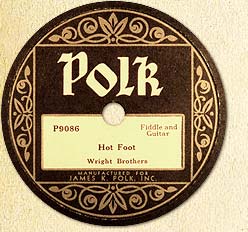 Marshall Wyatt: When you play records, do you use a tube amplifier? A lot of people swear by the tube sound. Marshall Wyatt: When you play records, do you use a tube amplifier? A lot of people swear by the tube sound.
David Freeman: I’ve used both. In fact, what I have in Floyd now was solid state but I’m changing it over to tube. I do feel there’s a richer, warmer sound with tubes, I don't know why. I know when CDs first came out there was that argument about sound, and I know I did hear things in the early days of CDs that just sounded crummy. But today, I have absolutely no problem listening to well-mastered CDs.
MW: I have an old Wurlitzer 412 jukebox, which of course uses tubes, and it puts out the best sound of any record player I’ve ever owned.
DF: I have one of those Wurlitzer 1015s in Floyd right now, in my office. I had it restored a little bit, although it was basically in good shape. I had lent it to the country store there in Floyd, it was there for a long time and people could play it. Then part of the mechanism got jammed, and I couldn’t find anybody down there to fix it. So that’s the state it’s in now, it won’t actually play. But I’m planning to bring it up here to Charlottesville and use it- put it right in the hall and get somebody to fix it up. I have another jukebox, too, I have a Rockola and I did have a 45 jukebox, too, but I got rid of that. I’d love to find one of those peacock models.
I had a chance one time to buy any number of jukeboxes that I wanted. There was a place down in Coeburn [in southwest Virginia] where we found a record stock. Loy Beaver and I both went in on the thing, this was back in the early ’60s. We got a lead and found this guy who'd been a jukebox operator. He had started out in the late ’30s, but his big time was during the war years, he must have made a fortune. When we found him he was in a different business, but he had records left over upstairs in his attic that we went through. And on the ground floor he had something like 35 or 40 Wurlitzer jukeboxes that he'd saved when he went out of business. They were just sitting there. He said, “You can have any of those you want- $35.” All I had was a car, a Chevrolet, I couldn’t fit a jukebox in there. I’d come down from New York at that time, so as it was the car was filled with 78s and 45s, so I didn’t even think about getting a jukebox. But later on I kicked myself for not figuring out some way to get two or three of those things.
MW: What kind of records did you find from that stock?
DF: Early postwar stuff. The highlights there were Rich-R-Tones and odd label bluegrass things like Hobo Jack. The guy actually did have 10 or 12 boxes of Bluebirds, even buff Bluebirds. And there were Sun records, Elvis Presleys and things like that. The only thing is, he was in that mining area, and everything was covered with, I swear, three-eighths of an inch of dust and grime. And he even gave us these overalls, white suits to put on, they were white at one time I guess. And it took weeks to get that stuff out of my hands- it was like grease in a car repair place. Just absolute grime. But most of the records were OK. It looked like nobody had been in there for 20 years, and on the very top records you couldn't even see the label there was so much black soot. But you took that one off the top of the stack and the rest of them were OK. The guy must have had 30 or 40 thousand, it took us two or three days to go through them all.
MW: Were jukebox dealers a major source of records for you as a collector?
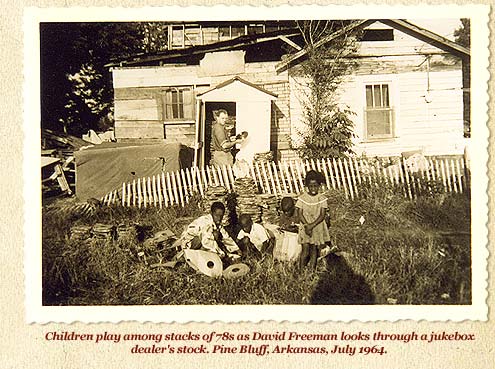 DF: Well, I probably found three or four stocks like that. I found a couple of stocks in Arkansas, I went down there with Joe Bussard. We found this place, it was in Pine Bluff, where this old black guy had a shed out in back, and he opened up the shed and there was a jukebox in there, and I don't know how many 78s. It was a big shed, but there was no room in there, so we had to take them all out and put them on the ground. And these kids were out there playing with them in the yard. Most of the records were postwar, but it was blues and country stuff. And he wanted four cents apiece for them! There were some neat, neat records in there. There were odd labels, things on Peacock, Parrott, we even found some Rich-R-Tones down there. There was a whole box of Jimmy Work on the Trophy label, which happens to be really, really scarce. Joe and I each found a copy of Julius King on the Tennessee label- I’ve never seen another copy since. We didn’t even know what it was when we found it, but it turned out to be a really good postwar black blues. Joe and I had gone down there figuring we’d spend two weeks, and I remember after four days we’d filled up the car, we couldn’t take any more, so we went back early. And I’d taken off time from my job, I was working in the post office at the time and we figured we’d stay down there a while because it was a long drive, but we had such good luck! DF: Well, I probably found three or four stocks like that. I found a couple of stocks in Arkansas, I went down there with Joe Bussard. We found this place, it was in Pine Bluff, where this old black guy had a shed out in back, and he opened up the shed and there was a jukebox in there, and I don't know how many 78s. It was a big shed, but there was no room in there, so we had to take them all out and put them on the ground. And these kids were out there playing with them in the yard. Most of the records were postwar, but it was blues and country stuff. And he wanted four cents apiece for them! There were some neat, neat records in there. There were odd labels, things on Peacock, Parrott, we even found some Rich-R-Tones down there. There was a whole box of Jimmy Work on the Trophy label, which happens to be really, really scarce. Joe and I each found a copy of Julius King on the Tennessee label- I’ve never seen another copy since. We didn’t even know what it was when we found it, but it turned out to be a really good postwar black blues. Joe and I had gone down there figuring we’d spend two weeks, and I remember after four days we’d filled up the car, we couldn’t take any more, so we went back early. And I’d taken off time from my job, I was working in the post office at the time and we figured we’d stay down there a while because it was a long drive, but we had such good luck!
MW: When you go out on a collecting trip like that with Joe Bussard, don’t you ever find yourself in competition for records?
DF: When I went with Joe, that was really the first experience I had at door-to-door canvassing. I think I met Joe in 1960. Until then, I’d been collecting in junk shops and antique stores and just following up leads, but he took me on my first two or three canvassing trips. We had a rough agreement, and I just deferred to him. Joe said, “Hey, anything that I have already, you can have. If we find a better copy, you can have my old copy.” And he had so much stuff already, that 90 percent of what we found, I ended up with! So I couldn’t complain about it. Of course, he did get some gems. There was one trip I made with him, I came back with 138 different Carter Family sides that I didn’t have before! We found just a ton of Carter Family, runs of Montgomery Wards, and things like that in homes down there. Most of that was in Virginia or West Virginia.
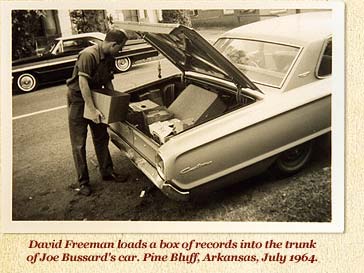 And then with Loy Beaver, his theory was, if you went in a house and you found something, you had first crack at it. We would take turns going into houses. Again, it was kind of lopsided, he would find a lot of records, but it never really became a problem because we were both finding enough to keep us happy. And then with Loy Beaver, his theory was, if you went in a house and you found something, you had first crack at it. We would take turns going into houses. Again, it was kind of lopsided, he would find a lot of records, but it never really became a problem because we were both finding enough to keep us happy.
MW: I’ve seen Loy Beaver’s name listed as a contributor on the back of many of the County LPs. Can you tell me more about him?
DF: He retired three or four years ago, he’s living in New Jersey. He’s originally from Copper Hill, in north Georgia. As a kid he knew Tommy Magness, and all the musicians that came from that area- Fiddlin’ John Carson and Land Norris. He knew all the towns and he’d been fascinated with the music at an early age. When he first met me in New York he didn’t have any records at all, but he knew all about the music. Somebody told him that I was a collector and I had a lot of these records, and he came over and visited me. His big favorite was Gid Tanner’s Skillet Lickers, and he knew all about Stokes and McMichen and all of them. Come to think of it, Loy sort of reminded me of Riley Puckett, based on the pictures I’ve seen of Puckett. Anyway, he came over and of course we had a lot in common, we both liked string bands. He was big on string bands- he liked the fiddle-banjo-guitar combination. So, when he saw that I had records I think it inspired him to go out and find some himself. And it was amazing- in his way he was more persistent than even Joe Bussard! I don't know how he did it, but every trip he made he’d come back with a ton of records. He could luck onto the right people- he had a nose for it, or he had good luck, and mostly he’d be able to talk them out of their records. He ended up in a very short time putting together a very, very nice collection of records.
MW: I heard that he worked as an undertaker.
DF: Actually, that’s right. And he always was proud of the fact that he embalmed Franklin Roosevelt! He was living in Georgia then, he was real young, he had his first job I guess in the funeral business. And when President Roosevelt died down there at Warm Springs, they brought his body over to the funeral home where Loy was working. That’s what he claimed anyway. Then when I met him he was working for a big Jewish funeral home in New York called Garlick’s, in the Bronx. It was strictly Jewish clientele, but of course he wasn’t Jewish, he was Southern Baptist. In between I think he worked as a traveling salesman for an embalming fluid company in Tennessee and Kentucky, that was his territory, so he knew those states back and forward. He must have worked for several years doing that. I don’t know how he came to settle in New York, but he moved up there and got a job and had a family.
MW: What sort of guidelines do you set for your personal collection? Do you try to get straight numerical runs or do you collect certain labels and artists?
DF: No hard and fast rules. Usually, if I like an artist, I’ll try to get everything that artist did, but there are exceptions. I’ve never tried to get everything on a particular label, but if I got interested in, like Charlie Poole, I wanted everything he did. I do have that kind of a thing for completion, I’m a completist to a certain extent. Then again there are artists, like the Carlisles, that I like but I wouldn't necessarily worry about having every single record that they ever did.
MW: Do you have all of the Charlie Poole 78s?
DF: I have all the Columbias and the Paramounts and the Brunswicks. I don’t have all the peripheral things, like those Roy Harvey Champions, but any record with Poole himself, I have it. In the areas that I went looking, those things did turn up. I spent a lot of time in the areas that Poole haunted, from Floyd on down to Collinsville and Martinsville, and into North Carolina. So those records all turned up in one form or another. A lot of the Columbias of course I was lucky enough to get out of dealer stock in different places, or buy them from Jake Schneider, back when I was living in New York.
MW: In hunting for Charlie Poole records, did you run into people who had known Poole?
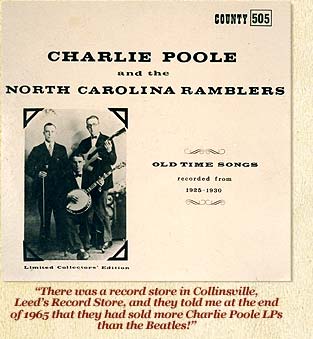 DF: That’s how I met the Rorrers actually. Somebody kept telling me that I ought to go see Cliff Rorrer there in Leaksville [in Rockingham County, NC]. They kept telling me about him- he was a radio dispatcher for the county police, and he had all kinds of records. I finally went over and saw him and he did have certain records. He didn’t want to sell anything he had, but it was the beginning of a good long friendship with him. At that time Kinney [Cliff's son] was still in high school, and was just getting interested in the collecting and the historical aspect of it, and we've kept in touch. [Kinney Rorrer later wrote the definitive biography of Charlie Poole, Rambling Blues.] DF: That’s how I met the Rorrers actually. Somebody kept telling me that I ought to go see Cliff Rorrer there in Leaksville [in Rockingham County, NC]. They kept telling me about him- he was a radio dispatcher for the county police, and he had all kinds of records. I finally went over and saw him and he did have certain records. He didn’t want to sell anything he had, but it was the beginning of a good long friendship with him. At that time Kinney [Cliff's son] was still in high school, and was just getting interested in the collecting and the historical aspect of it, and we've kept in touch. [Kinney Rorrer later wrote the definitive biography of Charlie Poole, Rambling Blues.]
MW: What was Cliff Rorrer's relation to Posey Rorer?
DF: I think he was a cousin or a nephew of Posey Rorer. And of course Posey’s sister was married to Charlie Poole, so there’s a relation to Charlie as well. Cliff and Kinney were real proud of the relationship and of course they took a great interest when we put out the first Charlie Poole album. That was the first non-anthology that we ever put out on County Records. At the time I was just thinking in terms of anthologies, you know. But then they encouraged me to do a Charlie Poole record. With their blessing, we did the first one and Cliff helped to get a lot of publicity down there, and it was great. This was 1965, or it might have been the end of ’64.
One of the things about it that I’ll never forget- there was a store in Collinsville [in Henry County, VA], Leed’s Record Store, and they told me at the end of 1965 that they had sold more Charlie Poole LPs than the Beatles! They had sold four or five hundred, just one store. And on top of that, they actually sold something like 20 or 30 stereo sets to these old farmers that didn't have anything but a windup. You know, so they could play the LP. These farmers were old enough to have known Charlie Poole, they knew who he was. That’s when you realized how legendary he was. And the manager of that store was real tickled at the fact that they could do so well with this music. They had a whole new audience of people coming in there to buy those albums. And there was a car dealer down there that gave records away if you bought a car, so they consumed a few boxes that way. It was a new experience for me, because I had to struggle just selling four or five hundred copies of those first anthologies I put out. In fact, we never had any intention of pressing more than 500 of anything until that Charlie Poole album. I saw that it was going to sell more, so we didn’t limit that and it ended up being one of the best sellers we ever had.
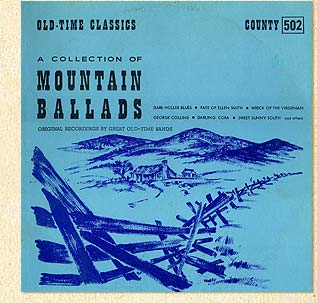 MW: The County LPs reached another audience, too, which was younger people who had never heard this music before, myself included. The first time I heard Charlie Poole was on one of your LPs. I was maybe 20 years old at the time. MW: The County LPs reached another audience, too, which was younger people who had never heard this music before, myself included. The first time I heard Charlie Poole was on one of your LPs. I was maybe 20 years old at the time.
DF: When I put those things out, my first thought was that there would be a market among the old people. At that point I was doing a lot of canvassing, a lot of traveling around and meeting some musicians, the old-timers, and a lot of the people who were old enough to have had the records and knew who the artists were. And I thought, hey, there’s got to be a market, and these people will remember and they’ll buy them. And I wasn’t really thinking of a young audience or a college audience, although the inspiration for me getting started in business was the Origin Jazz label. I didn’t know Bernie Klatzko or Pete Whelan [who founded Origin Jazz Library] at the time but I picked up one of their blues albums in New York, and I was fascinated and I thought, hey, why not do the same thing for country- somebody's going to do it, why not me? So Loy Beaver helped me get the first record out. He found a studio in New York that would do the whole custom pressing and everything like that. This was 1964. The first one was an anthology, Mountain Fiddle Tunes, and next we did Mountain Ballads.
MW: And these used your 78s?
DF: Yeah, they were all my 78s, then I started using other people’s, too. Loy Beaver would lend me some records, and Bussard, I think we borrowed a couple of things from Joe. Between the three of us, we had a pretty extensive collection. Enough at that point to put out nice collections of Gid Tanner and things like that.
MW: You were working for the post office at that time?
DF: At that point, yes. Between 1960 and ’65 I was working at the post office, the railway post office. It had been a separate division of the government called the Railway Mail Service. And then, about 1960, just about the time I went to work for them, they had just changed over to a branch of the postal service. I worked on two or three different runs- New York & Pittsburgh was the main one. You’d start working in the train in New York, sorting mail, maybe a couple of hours before it left and then an eight-hour run to Pittsburgh. Then you’d stay overnight there and then work coming back. It was a neat job, but it was on the way out already then. In the five years that I worked there they lost a lot of the trains, the service got cut back, and they cut a lot of the little stations, what they call locals, where they’d throw out the mail as they passed, and they had to catch ’em and pull the mail in. I think by 1970 it was pretty much a done deal. It was a good idea, but of course now it’s superfluous with all the mail that flies by airplane. They don’t need it anymore.
MW: You must have some good railroad records in your collection. It's certainly been a prime subject over the years in songs.
DF: Yeah. In fact, I've had some put aside in a box to put out a railroad reissue. I’ve been planning to do that for a couple of years now. I’ve just always been a rail fan, fascinated with railroads.
MW: Going all the way back, where were you born and raised?
DF: I was born in New York City, right in the heart of the city, 35th Street. And that’s pretty much where I lived up until the time I moved down to Floyd in 1974.
MW: Did you come from a musical family at all?
DF: No, no. My dad and mother were both artists. Commercial artists. My dad actually studied architecture, but he ended up in the greeting cards business, and started his own business, which I guess is where I get a lot of the same kind of ideas and independence that he had. My mother loved music, but mostly classical. I started listening to pop music in the 1940s, like anybody else, I guess.
MW: How did you get interested in country music?
DF: I remember specifically when it was. Every spring we used to go south, my family, whenever I had a spring vacation. We usually went to Florida because we had relatives down there. But one year, it was 1953, my folks decided to go to New Orleans. So from New York I remember it was a four day trip. We drove down the old Route 11, and stayed overnight somewhere around Kingsport or Johnson City, Tennessee. And going through that area, I remember hearing country music on the radio. I used to sit up in the front and just fool around with the radio and hear all these local stations. Not only that, I remember when we got into Alabama and Mississippi hearing some fantastic blues. I just wish I had recordings of the radio shows the way they were back then. It was probably not that much different than before the war.
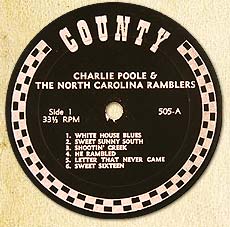 In Mississippi and Alabama the average commercial there on the black stations was advertising fortune tellers, you know, voodoo, how to put spells on your neighbors. It was weird, even at the time it was fascinating. In those days, during the middle of the day you’d still hear live programs, and farm programs, from Bristol and Johnson City, and on Saturday night hear the Opry live. In Mississippi and Alabama the average commercial there on the black stations was advertising fortune tellers, you know, voodoo, how to put spells on your neighbors. It was weird, even at the time it was fascinating. In those days, during the middle of the day you’d still hear live programs, and farm programs, from Bristol and Johnson City, and on Saturday night hear the Opry live.
I remember one place we stopped to eat- I think it was in Kingsport, where they had two jukeboxes. One was red and one was blue. I don't know if they were painted or what, but they were distinctly different. One of them was all pop music, which I recognized- Kaye Starr, Tony Bennett and things like that. And the other one was all country. And I didn’t recognize the country records at that time. But when I got back from that trip, I started to look for what I’d heard down there. I thought I could find anything in New York, but I had the toughest time finding anything there in the way of country music.
I lived just a few blocks from the New York Public Library, and I was over there all the time, I loved it and knew how to use it. But that was one thing you couldn’t find, there was just nothing written about country music. I finally found some record catalogs in some file, and I found out that there were records of Bill Monroe and Flatt & Scruggs on Columbia. I didn’t know what to make of it, it was absolutely amazing to see them on a big label. And sure enough, you could find it in New York, but you really had to know where to look. There were only one or two stores that would carry country records-places like Colony Records where they got one copy of every record that the major labels put out. Then I found Record Research, I used to bid on their auctions and I won some stuff. At that time I was really looking for Bill Monroe and people I was hearing on the radio. One auction had Charlie Poole's White House Blues and I already had the Bill Monroe version of White House Blues. So I was just curious, was this the same song or what? It sounded interesting- Charlie Poole and the North Carolina Ramblers- so I took a chance on it, I think I won a new copy of that for three dollars. And sure enough, when I heard it, I said, “Wow, this is fantastic!” Then I wanted to find out what else Charlie Poole recorded.
I’d go out of my way to find record catalogs, I went so far as to take the train down to Washington, DC, to go to the Library of Congress, you know, just to look up old catalogs, including the Montgomery Ward catalogs and Sears catalogs that I couldn’t find in New York. So I accumulated a lot of information lists. And then I met Gene Earle in the early ’60s, and he started showing me discographies. And I picked up some Disc Collectors in the Folklore Center that had articles by John Edwards and numerical listings of labels. Until I met Gene Earle and Bill Vernon, I was just sort of isolated. I was convinced that I was the only one in New York City that knew anything or cared anything about country music, that's how naive I was back then.
When I ran into Bill Vernon, that was sort of a revelation. He was a couple of years older than I was. He grew up in Connecticut and his parents were lawyers and he was, like me, a rebel I guess, out of the mainstream of other kids around us, you know. It turned out he liked country music, just on his own, like I did, something about it appealed to him. We had very similar tastes in country and bluegrass. I ran into him through a little "wanted" notice I put up in the Folklore Center in New York, Israel Young’s shop down there. Those were the Hootenanny days, 1959 or ’60, and there were people like Mike Seeger and Eric Weissberg, there was a scene there. But a lot of that was sort of on the folky side, and we didn’t exactly have the same interests. They were more interested in union songs, and the Weavers, and things like that. I was really hardcore country, and so was Bill Vernon- we liked Roy Acuff and the Louvin Brothers. And of course at that time bluegrass was not really differentiated from country music yet. Both of us started to get interested in the mid-’50s, so when we finally met we had a lot in common. Actually Bill was working down at Wall Street when I first met him, and then he quit his job down there and just tried to make it in country music. And he did, until he passed away a couple of years ago.
MW: Earlier you mentioned buying records from Jacob Schneider. Tell me about him.
DF: After I found out about Jacob Schneider, I’d walk up to his place and buy a few records whenever I got a little money together. He advertised that he had 450,000 records, that was his fugure, and I don’t doubt he had ’em! The shelves were sagging, falling down. This was in a real poor section of town. It was amazing he never got broken into or the place burned down, but he had all kinds of bars and chains and locks on the windows. Most of what he sold was either pop or jazz. But there were already some guys beginning to find out that he had blues and country records. I ran into Gene Earle there, Pete Whelan, and Bernie Klatzko, that’s how I met them, other people like that. They would come from out of town to specifically spend a day there. When I first came there, Schneider was just starting a master list, he was always typing, he was sitting at a desk always typing. And he had a little counter where you could spread out these books that listed everything he had, if you had the patience to go through them.
And when I first went there, I don’t think he charged more than $5.00 for any country record because he didn’t think they were worth it. If he had multiple copies he might give them to you for $2.50 or $3.50, those were his three prices. He had bought out at least one huge Columbia 15000 stock, and I remember he had the Leake County Revelers’ Thirty-First Street Blues. That's a relatively scarce record, and he had about 13 copies of that thing, mint. And I remember buying several of them to trade to other collectors. Not only that, but there was a collector down in Georgia that collected blues, and was a big Bessie Smith collector. And I would go to Schneider and buy Bessie Smith records to trade him for country records that he didn’t care about. And he couldn't believe it- “Where are you finding mint Bessie Smiths?” I wasn’t about to tell him. At Schneider’s I got the Fruit Jar Guzzlers on Paramount for $5.00 and I know I got some beautiful Cajun records.
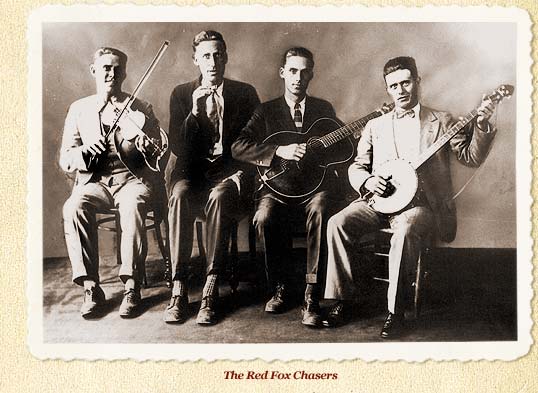 And I did run into some other things. The best find I ever had in New York was from a store up on 6th Avenue that just sold old comics and paper items, but one day they had a display of 78s that they bought somewhere. They put some bins out there, and it was all Victor records. I still have them because they’re all marked the same way, they're marked 25 cents in yellow crayon on there. That's what they were selling for. That's where I got my two Mississippi Possum Hunters, and I got my Grinnell Giggers out of there. They were 23000 Victors, and some of the obscure stuff. I got The Tail of Haley's Comet by the Happy Hayseeds. I got about 11 or 12 records, but they were all gems when you look at it now. And I probably wasn’t the first one to go through them, they’d probably been sitting in that store for a couple of days before I got in there. God knows what else was in there. And I did run into some other things. The best find I ever had in New York was from a store up on 6th Avenue that just sold old comics and paper items, but one day they had a display of 78s that they bought somewhere. They put some bins out there, and it was all Victor records. I still have them because they’re all marked the same way, they're marked 25 cents in yellow crayon on there. That's what they were selling for. That's where I got my two Mississippi Possum Hunters, and I got my Grinnell Giggers out of there. They were 23000 Victors, and some of the obscure stuff. I got The Tail of Haley's Comet by the Happy Hayseeds. I got about 11 or 12 records, but they were all gems when you look at it now. And I probably wasn’t the first one to go through them, they’d probably been sitting in that store for a couple of days before I got in there. God knows what else was in there.
MW: Can you tell me about some of the old-time recording artists that you met on your travels?
DF: There were a couple of English collectors who were over here in August of 1965. Actually one of the fellows was from Northern Ireland [Rodney McElrea] and the other was from Scotland [John McLaughlin]. And it was like magic, they could go anywhere and talk to anybody. People were absolutely taken with their accents, you know, and the fact they knew country music, they knew the music and the records. They had found out about all these old-time musicians that were still living and they wanted to meet them. And they’d arranged to meet these people- we met Sara Carter at the time. Fascinating trip. We went to see Cliff Carlisle in Louisville, Kentucky, and Molly O’Day, we got to meet her, and we met Jimmy Tarlton. Tarlton wanted to charge us to record. He wanted to play for us, but he wanted to charge, you know. And I think we actually did give him some money, and they got a tape of him, very informal, singing and playing guitar. It was absolutely thrilling. This was just before he made that album for Testament.
We went all over the South, I took a month off from my railroad job, and I never went back. I decided I’d try to make country music a full-time business. In October of ’65 I went full time into selling records, other labels as well as our own. We had a few of our own records on County, three or four of the reissues and then a couple of new live recordings. And I’d been running auctions for three or four years, and had a couple of hundred people on my auction mailing list, and I figured, hey. And there was just starting to be a market for country LPs, and bluegrass, and nobody was really servicing that market. Most people couldn’t get the stuff. So I thought, well, I would supply them, I could start making a business out of it, and I did. I started with $500 and I never looked back. When I took a leave of absence from the post office, I was fully expecting I’d have to go back. But it just worked out, it just kept expanding and I never had to go back.
MW: What were the first live recordings that you put out?
DF: The first actual live recording I put out was Clawhammer Banjo, and that was a collection of field recordings that Charlie Faurot had made. I met him through Bill Vernon in Brooklyn, and he was looking for a place to present some of the musicians he had recorded, including Wade Ward and Kyle Creed and Fred Cockerham. And I loved the stuff, and so we put out that record. Then we recorded Larry Richardson, he had a bluegrass band out of Winston-Salem [NC] at the time. That was in 1964 or ’65.
MW: One of my favorite County LPs is the Red Fox Chasers. You knew them, didn't you?
DF: Loy Beaver and I met Paul Miles and Bob Cranford and Fonzie Thompson- three of the four guys in that group were still living when we were down there [Surry and Allegheny Counties, NC]. I guess Guy Brooks the fiddler had already passed away. Loy knew Paul Miles pretty well, and we had some good times with them. And when we put out that Red Fox Chasers record, I think Paul Miles sold two or three hundred of those things just going around the county, because he knew all kinds of people. And he was a character. But Fonzie Thompson was my favorite of them. He was mild-mannered and just a sweet guy. One of the first times we met him, I remember we asked him about Bob Cranford, asked him if Bob Cranford was still living. And he said, “Oh sure, I'll take you over to meet him.” So we started out to meet him, and he was getting a haircut. So we went in the barber shop where he was actually sitting in the chair, and the two of them sang together while he was getting a haircut! They sang Looking to My Prayer, you know, just like they did on the record.
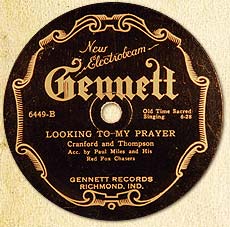 MW: Did you turn up Gennetts by the Fox Chasers? MW: Did you turn up Gennetts by the Fox Chasers?
DF: We found quite a few of them down there. Because Paul Miles- like I said, he distributed and sold some of the records himself, the Gennetts, when they came out. And he mentioned a couple of people down there, at least one dealer that sold them out of his house, it wasn't like a store or anything, and I’m thinking he did that himself, too. He would take us around and Loy would ask him, “You know anybody else who would have some of your old records?” And he'd take us around the county, and sure enough we found a number of those records. And I had already found some others, just through looking in that area, I’d found some of their records that were reissued on Champion and Supertone. I’d never seen that many of the Gennetts before, but he must have sold the actual Gennetts because we found a number of them. Between Loy and myself, I think we found just about all of them. And some of them, three or four copies! I found several copies of Looking To My Prayer. At the time we thought that was a common record, you know, because it was the one they were known for the most. Of course, I haven't seen another copy in ages!
MW: Joe Bussard likes to tell about finding a box of 15 Black Patti records under somebody's bed. I was wondering if you had stories like that.
DF: Nothing quite like that. But Loy and I did run into a guy in High Point, North Carolina whose father had been a record dealer in the ’20s and early ’30s. They’d gone out of business and they’d stashed all the records upstairs. They still had a business location, but they were selling stationery. And some other collector down there told us about it, he said, “Oh, you got to go and see this guy. He’ll never sell you those records, but you might get to see them.” And sure enough, it took us a long time to persuade him. Evidently somebody had gone in there and just wasted his time, spent hours and only bought three records. And this guy was a businessman, he didn't want to fool with that.
Finally, I came up with something, I said, “Look, if it’s really what you say it is, we guarantee that we'll buy a couple of hundred dollars worth.” So he said, “All right, a dollar apiece, if you promise to buy at least $200 worth." And Loy was kind of skeptical, because that was a lot of money, you know. So I said, “Just give us five minutes, and we’ll tell you if we’ll do it.”
We went up there, and the whole wall of this building was covered with records- it was essentially a Victor dealer stock. And it went back to the ’teens, because it was predominantly pre-scroll Victors, including red label classical. There must have been seven or eight thousand records there. All mint, in their original stock sleeves. They had them all arranged numerically, and sure enough, near the bottom we started running into the 20000s, the 21000s [series containing country and blues]. All we had to do was pull out a few of those. We spent five minutes, and there was enough in one little section to convince us. So we said, “We'll do it.”
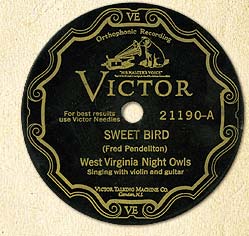 We ended up with four or five hundred records, including blues like Tommy Johnson and the Memphis Jug Band and Julius Daniels. I remember that I got one of the Luke Jordan records. And almost every Grayson & Whitter was there. And there were some early 23000s there, like Blind Alfred Reed. Most of it was 40000s and the 21000s- the West Virginia Night Owls, all kinds of Carolina Tar Heels, you know, with Clarence Ashley, and the Grayson & Whitters, Pope's Arkansas Mountaineers. Everything we got was good. What wasn't there- there were no Carter Families and no Jimmie Rodgers-somebody else had obviously taken those. But I didn't care about those, by then I had most of the Carter Families and Jimmie Rodgers I wanted, so that wasn't a big thing. But all the string bands! I mean, that’s what was there, the odd string-band stuff, and blues, sometimes two or three copies of them. I know there were two copies of Maggie Campbell by Tommy Johnson. That was one of the first ones I saw. But Loy wasn’t the least bit interested in blues, he didn't care anything about it. But I told him, “Look, anything that looks like blues, you put aside for me, I'll take it and pay for it.” We ended up with four or five hundred records, including blues like Tommy Johnson and the Memphis Jug Band and Julius Daniels. I remember that I got one of the Luke Jordan records. And almost every Grayson & Whitter was there. And there were some early 23000s there, like Blind Alfred Reed. Most of it was 40000s and the 21000s- the West Virginia Night Owls, all kinds of Carolina Tar Heels, you know, with Clarence Ashley, and the Grayson & Whitters, Pope's Arkansas Mountaineers. Everything we got was good. What wasn't there- there were no Carter Families and no Jimmie Rodgers-somebody else had obviously taken those. But I didn't care about those, by then I had most of the Carter Families and Jimmie Rodgers I wanted, so that wasn't a big thing. But all the string bands! I mean, that’s what was there, the odd string-band stuff, and blues, sometimes two or three copies of them. I know there were two copies of Maggie Campbell by Tommy Johnson. That was one of the first ones I saw. But Loy wasn’t the least bit interested in blues, he didn't care anything about it. But I told him, “Look, anything that looks like blues, you put aside for me, I'll take it and pay for it.”
MW: When did you get interested in blues?
DF: I liked blues right from the beginning. One of the things that inspired me, like I said, was the Origin Jazz label, and some of the things on the Harry Smith collection. I loved John Hurt, and the jug bands, things like that. I like the real country blues, heavy stuff, Charlie Patton and Blind Willie McTell, distinctive artists. I was lucky enough to find some. I bought a little collection from a collector who was a friend of Gene Earle’s, this was way back when Gene was still living in New Jersey, back in the early ’60s. Jim St. Amand was a friend of his, sort of a protegé, a young fellow. And he had the start of a really nice collection, mostly blues. I don't know where he got them, but in those days you could pick this stuff up from antique stores and all. Almost everything he had was new or new-minus. He had a bunch of Blind Boy Fullers and he had Robert Johnsons, a couple of them. But he went back earlier, he had some early OKehs, some jug bands. Anyway, suddenly he got religion, he became a Jehovah's Witness, and it wasn’t cool to have the records anymore, so he sold me his whole collection! I don't know whatever happened to him, he moved to upstate New York somewhere and I never did hear anymore from him. A nice fellow. But that's where some of my best blues records came from.
Oh, I’d find a blues record here or there. I found a Patton when I was living in Floyd, of all things, literally around the corner from me, down the next road, down the dirt road. (laughs) That’s what is was, a new-minus copy of Down the Dirt Road Blues by Charlie Patton. And I found a Skip James record in a house up near the airport in Roanoke, the gospel one. I rarely ever win a blues item in an auction- I can't afford it, but I did get some that I just stumbled onto like that.
MW: Tell me about your decision to move from New York to Floyd.
DF: I decided to move to Floyd in 1973. A lot of the records we were selling, a lot of the people we were recording at that point, were from the Galax [VA] area, and Mt. Airy [NC]. I was going down there more than any other place, and a lot of the stores- not that there were a lot of them- but the few stores that were selling our records were in that area. And I’d gotten married in 1972 and we had our first child in ’74, and we were looking to get out of New York City. We were living right in the middle of the city in a small apartment, and just starting a family we thought it would be good to move out to the country.
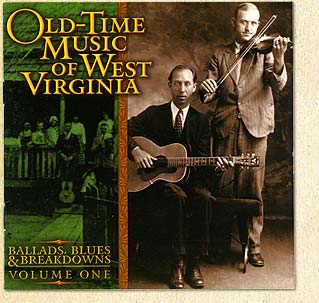 My wife and I looked at an old frame house outside of Fries. And I remember I was just about to buy it and I asked Kyle Creed, who we were friendly with at the time, I asked him to come over and take a look at it to see if it was solid. Because he had been in construction, carpentry. And he came over and said, “Dave, don't buy that.” Even though it was really cheap, it was like two thousand dollars for the house and the land, and a beautiful view of the river. We fell in love with the setting, you know, but we ended up looking some more and we found a place in Floyd. I had always liked Floyd County- in fact, that was one of the places where Loy Beaver and I went several times because we always had such good luck in that county. We used Floyd as a base of operations a couple of times, so I got to know that area as early as 1961. My wife and I looked at an old frame house outside of Fries. And I remember I was just about to buy it and I asked Kyle Creed, who we were friendly with at the time, I asked him to come over and take a look at it to see if it was solid. Because he had been in construction, carpentry. And he came over and said, “Dave, don't buy that.” Even though it was really cheap, it was like two thousand dollars for the house and the land, and a beautiful view of the river. We fell in love with the setting, you know, but we ended up looking some more and we found a place in Floyd. I had always liked Floyd County- in fact, that was one of the places where Loy Beaver and I went several times because we always had such good luck in that county. We used Floyd as a base of operations a couple of times, so I got to know that area as early as 1961.
Anyway, my wife and I decided to move in August of ’73 when we went down to the Galax Fiddlers Convention. That’s when we saw an ad in the Roanoke paper for a place in Floyd County. We went and looked at it and liked that setting and we bought it and moved in March of ’74. We went down there, moved the business. That was a big move when I think about it, but you know when you’re more or less young, you just do it. I’m glad we did. In Floyd there was something nice about the atmosphere and the people and I still feel that way.
MW: What are some of your upcoming reissue projects on the County label?
DF: We’re working on these West Virginia anthologies, there are two of them, they’ll be next. We’re doing two volumes of Texas string bands, and we may do something on North Carolina later. And I’m doing a Clarence Ashley compilation- including the various bands he recorded with, aside from his banjo pieces on Columbia- Ashley & Foster, and things like that. I’m going to reissue those railroad songs if I ever finish that up. What else are we doing? Oh yeah, a couple of Georgia anthologies. And we’ve thought about doing our Stripling Brothers album, redoing it on CD possibly, and the East Texas Serenaders. I was going to do Kentucky, maybe a Corbin area thing, with Walker's Corbin Ramblers and B.F. Shelton and Ernest Phipps, but a lot of that material has been put out already [by Yazoo]. Oh yeah, the harmonica album, we’re going to redo that, probably with a little different selection, we’ll add some more cuts. And maybe we’ll redo Ridin' in an Old Model T. That one didn’t really get much distribution because it came at the end of the LP era. We did two pressings and that was it.
MW: One last question-what made you choose the County name in the first place?
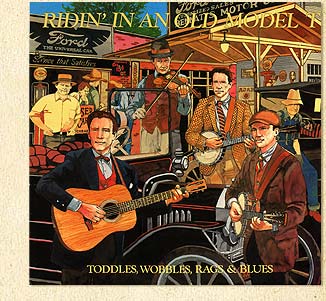 DF: Just because it’s something that appeals to me, you know, regional and local music. The more local the better. I wanted a name that would imply “rural,” the rural aspect of music fascinated me, as opposed to the city music I grew up with. Every county has its own personality, its own musical tradition. You can go from one place to another and pick up the subtle differences. Geography fascinated me as a kid, and I took note of the various towns and counties whenever we traveled. You get to know hundreds of counties in the South, and they're each a little different. When I went to pick a name, “County” seemed to ring true for me. Later, when I moved to Floyd and set up business there, we would get endless phone calls asking for old marriage records and things like that. They thought we were the county court house! That didn’t happen in New York City. DF: Just because it’s something that appeals to me, you know, regional and local music. The more local the better. I wanted a name that would imply “rural,” the rural aspect of music fascinated me, as opposed to the city music I grew up with. Every county has its own personality, its own musical tradition. You can go from one place to another and pick up the subtle differences. Geography fascinated me as a kid, and I took note of the various towns and counties whenever we traveled. You get to know hundreds of counties in the South, and they're each a little different. When I went to pick a name, “County” seemed to ring true for me. Later, when I moved to Floyd and set up business there, we would get endless phone calls asking for old marriage records and things like that. They thought we were the county court house! That didn’t happen in New York City.
|

